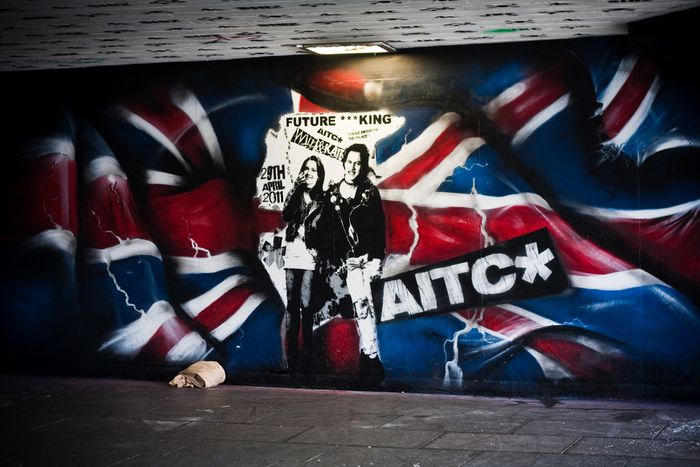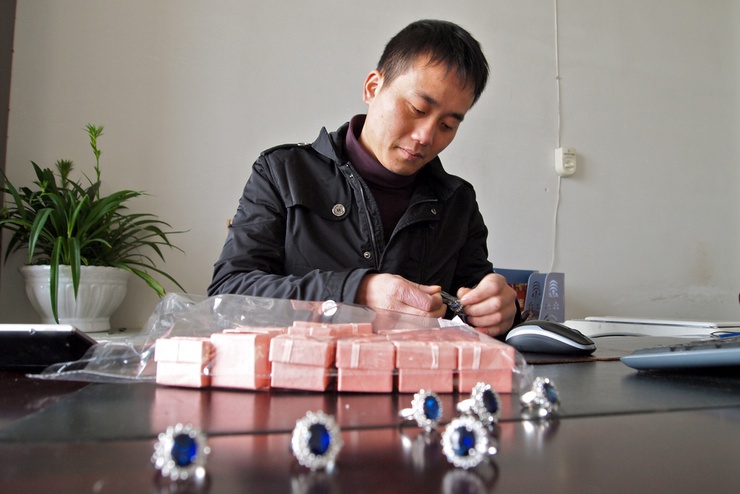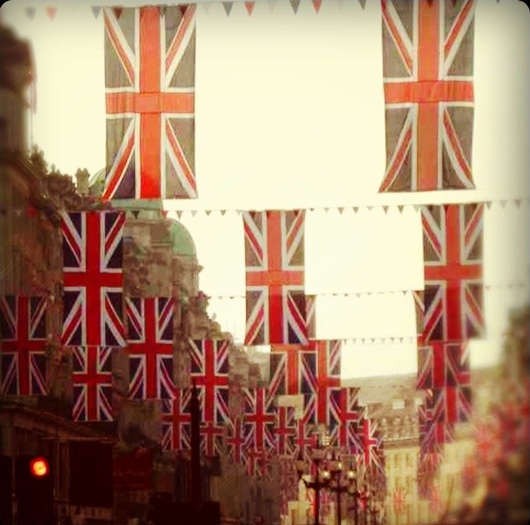
What are you doing on 29 April? European republicans on rise amid British royal wedding hysteria
Published on
As a Brit currently living in Germany, many people have recently been asking me excitedly about the up-coming British royal wedding. Mostly people are surprised, or even disappointed, when I explain that no, I won’t be watching the wedding, but rather probably inviting friends around for a 'this is not a royal wedding' party
So what will most people in Europe be doing on 29 April? There are several possibilities: some will be watching the royal wedding between Prince William and Catherine aka Kate Middleton from their sofa with a cup of tea. Some may even travel to Westminister Abbey in London to try to catch a glimpse of the bride and see if the dress was worth the public money. Some will express indifference and go to the pub. Others will be campaigning to bring down the monarchy once and for all.

This last camp of republicans is not a small as you may think. While surveys in recent years have indicated that around only 18% (Ipsos Mori) of the UK population is in favour of abolishing the monarchy, a 50% increase over the last four months in the number of supporters of the UK republican campaign suggests that this royal wedding may result in less apathy and more direct activism in the face of British politics.
So what does the wedding have to do with British politics?
 This is the kind of question that arises from the 'don’t know' camp (when questioned on the monarchy). These 'don’t know’s' - the people who will be in the pub on 29 April - often say things like 'well I don’t care about the royal family but they’re not doing any harm'. Among other reasons, the monarchy represents the political heritage of a country which claims to be one of the oldest democracies in the world, but which still places power in the hands of those who were born into certain families. This not only refers to royal family members obtaining certain key positions - such as prince Andrew being handed out the role of UK special representative for international trade and investment in 2001 - but also to ever-present hereditary peerage in the house of lords, the second chamber of the UK parliament. Thankfully a 1999 act put a brake on the practice, but these are examples from the same bucket, one in which aristocrats continue to exercise sheer power, whether obtained via hereditary lines or pure wealth accumulation. As the primary symbol of this world where birth rights and power still go hand-in-hand, the monarchy remains a huge obstacle in the path to progressive politics.
This is the kind of question that arises from the 'don’t know' camp (when questioned on the monarchy). These 'don’t know’s' - the people who will be in the pub on 29 April - often say things like 'well I don’t care about the royal family but they’re not doing any harm'. Among other reasons, the monarchy represents the political heritage of a country which claims to be one of the oldest democracies in the world, but which still places power in the hands of those who were born into certain families. This not only refers to royal family members obtaining certain key positions - such as prince Andrew being handed out the role of UK special representative for international trade and investment in 2001 - but also to ever-present hereditary peerage in the house of lords, the second chamber of the UK parliament. Thankfully a 1999 act put a brake on the practice, but these are examples from the same bucket, one in which aristocrats continue to exercise sheer power, whether obtained via hereditary lines or pure wealth accumulation. As the primary symbol of this world where birth rights and power still go hand-in-hand, the monarchy remains a huge obstacle in the path to progressive politics.
With these arguments in mind, the republican campaign is not only hoping to see some of its new-found supporters on the streets on 29 April, but it may get some of the people out of the pubs or even off their sofas. Support is not only expected from people in the UK either; on 30 April the alliance of European republic movements, created in 2010, is meeting in London to launch their plans for a monarchy-free Europe. The wedding may be costing the UK tax-payers several million pounds, but if it leads to more people looking to escape the hysteria and a resulting growing awareness around the significance of a monarchy in Europe today, it could be worth every penny.
Images: main street art (cc) garryknight; royal wedding ring replica and caption (cc) Remko Tanis/ read his blog Life From China; bunting (cc) y DG JonesDavid Jones and on google profiles/ all courtesy of Flickr



